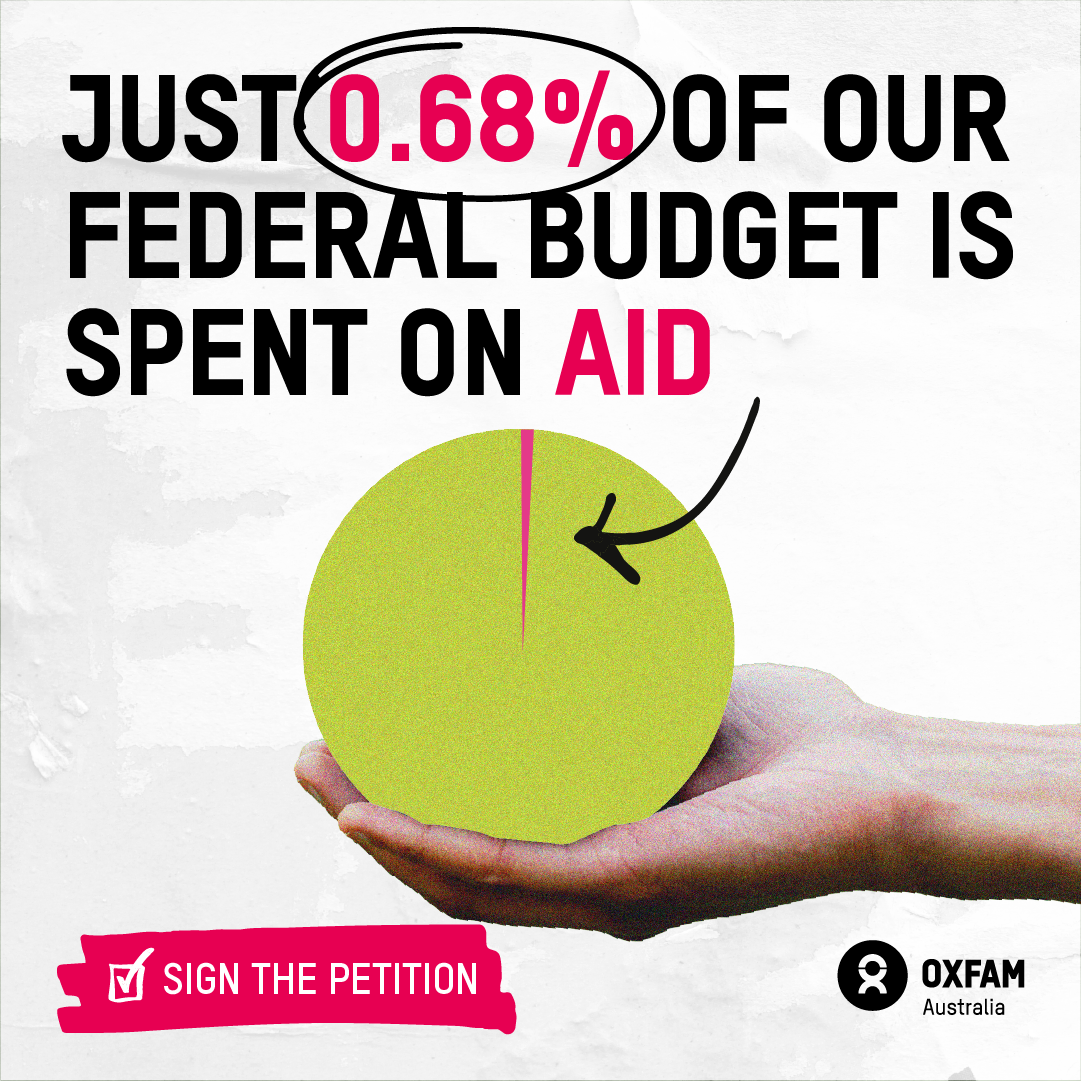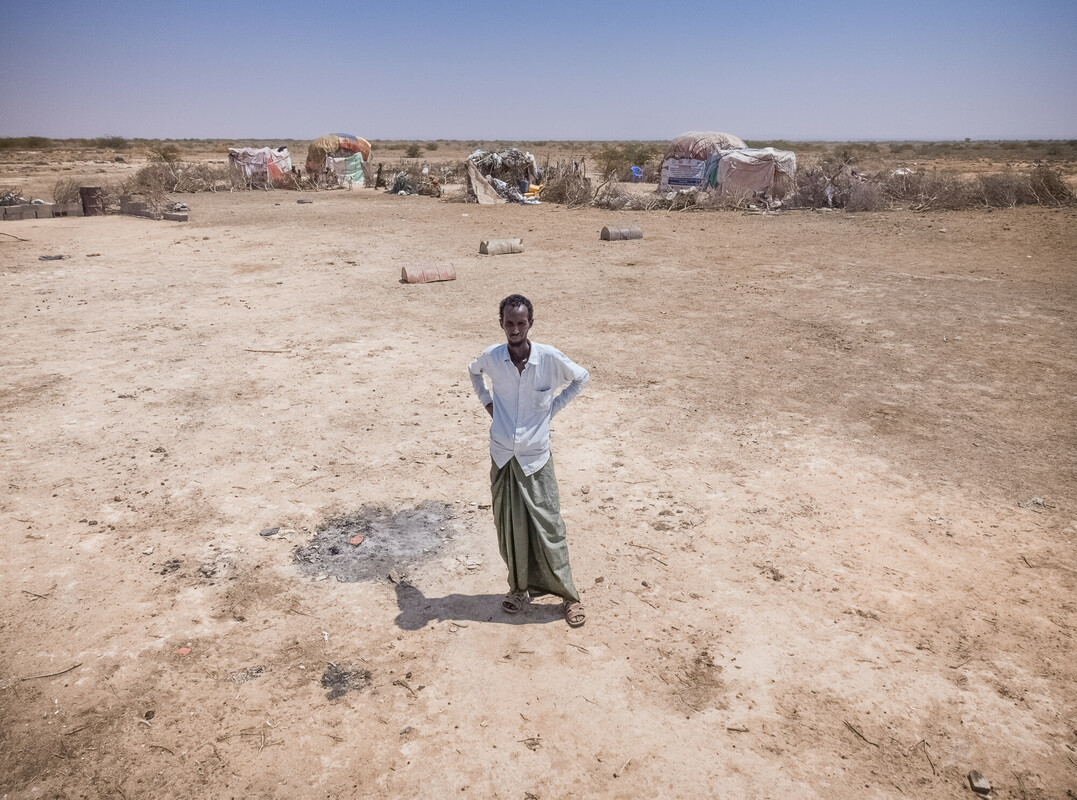“There have been drought problems since I was born, but within my lifetime, this is the worst drought I have ever experienced.”
Abdulahi, 27 years old, is a farmer in Puntland, Somalia. This is the fourth year that Abdulahi’s farm has gone without rain. The worsening drought has killed his livestock and he might soon be forced to leave his home, like many other families, in search of food and water.
Threats to our world are intensifying – dangerous weather, increased wars and soaring inequality. All of which are leaving millions of people homeless, hungry and unable to recover.
Due to drought related hunger in East Africa, 1 person is dying every 35 seconds.1
In 2023, 1 in every 69 people on Earth had to flee their homes due to conflict or persecution.2
What's worse is that due to global warming and political instabilities these numbers will continue to rise every year.
2024 was recorded as the hottest year on Earth which has only exacerbated climate related disasters. Meanwhile, Australia allocated $14.5 billion to fossil fuel subsides this year - 3 times more than was allocated to aid. 3
Right now, Australia’s aid spending is at its least generous point in our history.

Embarrassingly, for a country that always helps its neighbours we only allocate 0.68% of our annual budget to international aid. Australia's commitment is amongst the lowest of all wealthy countries, and less than half of what many other countries give. This puts at risk the progress we’ve made on ending extreme poverty.
The world is at a turning point and we can make a difference. We need to increase investment in international aid.
To address the most pressing humanitarian crises we need to lift Australia's contribution to international aid to 1% of the first federal budget.
It’s only through providing sufficient emergency assistance to those who need it, by supporting disaster risk reduction strategies and by tackling the root causes of conflict can we end poverty for good.
Join us on demanding that Australia’s leaders increase our aid budget today.
Headline
Destructive weather fueled by climate change is causing an increase floods, fires, and historic famines that are devastating lives all over the world. Whilst climate change affects us all, it hurts some people more than others and many communities are struggling to survive.
Women, young people, First Peoples, and those already experiencing poverty or inequality are at greatest risk.
The climate crisis and the system that created it are the biggest contributors to global poverty and inequality today. Years of reckless climate policy has allowed fossil fuel giants to get rich by mining and burning coal, oil and gas like there’s no tomorrow while those who contributed least to the crisis are plunged deeper into poverty. It is estimated that climate change could drive a further 122 million people into extreme poverty by 2030.
References
1. https://www.oxfam.org/en/press-releases/hunger-likely-claim-life-every-36-seconds-drought-stricken-east-africa-over-next
2. https://www.unhcr.org/au/global-trends
3. https://www.theguardian.com/environment/2025/jan/10/world-temperature-in-2024-exceeded-15c-for-first-time





